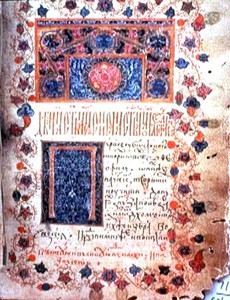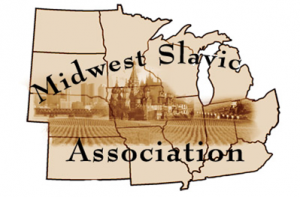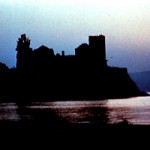This year’s Byzantine Studies Conference will be held at Simon Fraser University in Vancouver, Canada, November 6-9, 2014.
Final version of the Abstracts of Papers
See the Draft of the conference program below:
PROGRAM
Thursday, November 6, 2014
4:30-6:30PM
Registration, Reception, and Welcome
Founders Hall – Segal Building, 500 Granville Street
6:30-8:30 First Board Meeting
Friday, November 7, 2014
8:30 AM Welcome
Segal Building, 500 Granville Street
Dimitris Krallis, Simon Fraser University
9:00-11:30 Session 1
1A Session in honor of Erica Cruikshank Dodd: The visual culture of Byzantium in a Mediterranean context
Chair: Lesley Jessop, University of Victoria, B.C
- “Visual Theology in Early Byzantine and Islamic Art”
Rico Franses, American University of Beirut
- “Three Women and their Icons in the Context of the Crusades”
Annemarie Weyl Carr, Southern Methodist University
- “Two 13th Century Icons from the Monastery of St. Catherine: Byzantine or Crusader”
Jaroslav Folda, University of North Carolina, Chapel Hill
- “The Silks of Palermo in Philagathos’ Ekphrasis and the Byzantine Textile Industry of the Twelfth Century”
Evanthia Baboula, University of Victoria
Respondent: Anthony Cutler, Pennsylvania State University
1B The Self in Byzantine Poetry
Chair: Derek Krueger
- “Autobiography or Autography: Seeking the True Self in Gregory of Nazianzus’ Poemata de seipso”
Suzanne Abrams Rebillard, Ithaca, NY
- “Ephrem’s Economic ‘I’ and the Problem of Early Byzantine Authorship” Jeffrey Wickes, Saint Louis University
- “Blindness and Self-Recognition in Nonnos of Panopolis’ Metaphrasis of John 9”
Scott F. Johnson, Georgetown University and Dumbarton Oaks
- “Social and Personal Self in Tzetzes’ Chiliades”
Aglae Pizzone, University of Geneva
- “Depictions of the Self in the Poems of Manuel Philes”
Marina Bazzani, University of Oxford
11:30-11:45 AM-Coffee Break
11:45AM-1:15PM-Session 2
2A The Emperor and the Church, Part One
Chair:
- “Theodosius II and the First Council of Ephesus”
George Bevan, Queen’s University
- “When the Emperor Changed his Mind”
Patrick Gray, York University
- “Victory Over the Enemy of the Church: The Empire, the Church and the Council of Nicaea”
Edward Mason, University of Kentucky
2B Byzantine Monumental Art
Chair:
- “The Economy of Salvation at the Red Monastery Church, Upper Egypt”
Elizabeth Bolman, Temple University
- “Painting and Ideology in 14th-Century Mistras: The Iconographic Program of the Gallery in the Virgin Hodegetria”
Nektarios Zarras, The University of the Aegean
- “The Protevangelium of James and the wall mosaics in the (Justinianic?) Eufrasiana”
Thomas E Schweigert, University of Wisconsin-Whitewater
1:15-2:15 P.M.- Lunch
2:15-3:45 P.M.-Session 3
3A Erōs and Logos: Sexual Desire in Byzantine Literature
Chair: Margaret Mullett, Dumbarton Oaks
- “What Love Is This?: Divine Fantasy in Symeon the New Theologian’s Erotes”
Derek Krueger, University of North Carolina at Greensboro
- “Inventive Logos, Coercive Erōs: The Poetics of Passion in Eustathios Makrembolites’ Hysmine and Hysminias”
Christina Christoforatou, Baruch College, CUNY
- “Furtive Eros, Thieving Aphrodite: Transgressive Desire in the Cycle of Agathias”
Steven D. Smith, Hofstra University
3B Two Columns and a Stylite
Chair: Eunice Dauterman Maguire, Johns Hopkins University
- “The Narrative Reconfiguration of an Imperial Monument: How the Bronze Horseman Became Heraclius”
Elena N. Boeck, DePaul University
- “Pillars of the Community: Stylites as Architecture”
Shannon Steiner, Bryn Mawr College
3:45-4:00 P.M.- Coffee Break
4:00 P.M.-6:00 P.M- Session 4
4A Byzantine Women
Chair: Alice-Mary Talbot, Dumbarton Oaks
- “Early Byzantine Sarcophagi and the Iconography of Educated Susanna”
Catherine C. Taylor, Brigham Young University
- “East and West Marry: Considering Translatio as Women’s Work in Bridging Mediterranean Empire”
Megan Moore, University of Missouri
- “From the Imperial Palace to the Province: The Early Formation of Byzantine Marriage Ritual”
Gabriel Radle, Yale Institute of Sacred Music and Dumbarton Oaks
- “Motherhood in Late Byzantium: Blessing, purification and penitential rites pertaining to childbirth and child loss”
Nina Glibetic, Yale University
4B Objects in Context: Material Spatiality and Byzantine Textiles
Sponsored by The Mary Jaharis Center for Byzantine Art and Culture
Co-chairs: Jennifer Ball, Brooklyn College and the Graduate Center, CUNY; Gudrun Buehl, Dumbarton Oaks; and Elizabeth Williams, Dumbarton Oaks
- “‘Numerous Escort’: Liturgical Objects in Concert during the Late Byzantine Great Entrance”
Tera Lee Hedrick, Northwestern University
- “Shaping Experience: Curtains and Veils in Middle and Late Byzantium”
Maria G. Parani, University of Cyprus, Nicosia
- “Furnishing the Household Memory Theater in Late Antiquity”
Thelma K. Thomas, Institute of Fine Arts, New York University
- “Woven Architecture and the Early Byzantine Sense of Human Space”
Eunice Dauterman Maguire, Johns Hopkins University
6:10-7:30 Reception (co-sponsored by the International Center of Medieval Art and the Mary Jaharis Center for Byzantine Art and Culture)
7:30-9:00 Keynote Speech
Segal Building, 500 Granville Street
Saturday, November 8, 2014
9:00AM-11:00 AM Session 5
5A Byzantines and Latins
Chair: Teresa Shawcross, Princeton University
- “Greek Scripts and Latin Elites: (Re)Presenting Byzantine Lordship in Pre-Norman Southern Italy”
Norman Underwood, University of California-Berkeley
- “Symbiosis: The Survival of Greek Christianity in the Norman Kingdom of Sicily”
Frank McGough, The Ohio State University
- “Socio-Economic Continuity and Political Unity in Frankish Achaea, 1204-1259”
Kevin Bloomfield, The Ohio State University
- “Fleeing the Image Breakers: Ecclesiastical Refugees in Italy”
Joseph Western, Saint Louis University
5B Byzantine Art
Chair: Anthony Cutler, Pennsylvania State University
- “Divinely-Mandated Regime Change: Elijah and “Macedonian” Dynastic Ideology in the Paris Gregory”
Christopher Timm, Florida State University
- “They Who First Are Granted the Divine Enlightenment: Angels, Translucency, and Light in Byzantine Art”
Magdalene Bethge Breidenthal, Yale University
- “Epigrams and the Presentation of Relics in the Middle Byzantine Period”
Brad Hostetler, Florida State University
- “A Reinterpretation of Silk in the Middle Byzantine Period”
Julia Galliker, University of Birmingam, UK
11:00-11:15 A.M.-Coffee Break
11:15 A.M.- 1:15- Session 6
6A Byzantine Texts and Textuality
Chair: Stephen Reinert, Rutgers University
- “Praise of a Teacher or Periautology?: Theodore II Laskaris’ Self-Representation in the Encomium of George Akropolites”
Aleksandar Jovanović, Simon Fraser University
- “Teaching Methods and Educational Practice in the Eleventh Century” Sergei Mariev, Ludwig Maximilians University of Munich
- “Byzantinophilia in the Letters of Grigor Magistros Pahwaluni?”
Anna Linden Weller, Rutgers University
- “Rethinking the biography of Anna Komnene”
Leonora Neville, University of Wisconsin Madison
6B The Eloquence of Art: Session Dedicated to Henry Maguire
Chair: Rossitza B. Schroeder, Graduate Theological Union
- “King David Narratives in the Dura-Europos Synagogue”
Kära L. Schenk, Austin, TX
- “New Evidence for Middle-Byzantine Court Dress: The Clasp from Tahancha”
Warren T. Woodfin, Queens College, CUNY
- “The Kanon for “He who is at the Point of Death” and its Iconography in Leimonos MS 295”
Vasileios Marinis, Yale University
- “A Byzantine Cameo and the Rhetoric of Paradise”
James A. Magruder, III, Johns Hopkins University
1:15-3:15 P.M. Business Lunch
3:15-4:45 Session 7
7A Audience and Intent: Patrons and Innovation in Church Fresco Iconography
Chair: Erica Cruikshank Dodd
- “Jaroslav I’s Political Ideology in the Northern Chapels of Saint Sophia, Kiev”
Sarah C. Simmons, Florida State University
- “And their eyes were opened: the perceptions of Christ’s Miracle Cycle in the early Palaiologan period”
Maria Alessia Rossi, Courtauld Institute of Art, London
- “Antiquarianism in Late Byzantine Mystras”
Andrea Mattiello, University of Birmingham, UK
7B The Emperor and the Church, Part Two
Chair:
- “What Was the Council in Trullo?”
David Olster, University of Kentucky
- “Bishop and Imperial Court, 350-430 CE: Tracing Patterns of Social Interaction across Multiple Letter Collections”
Adam M. Schor, University of South Carolina
- “Emperor and Church Politics, 484-518: The Eastern Reception of Papal Primacy Claims”
Dana Iuliana Viezure, Seton Hall University
4:45-5:00 P.M. – Coffee Break
5:00-7:00 P.M.-Session 8
8A. Cultural Exchange in the Frankish Levant (Sponsored by the International Center for Medieval Art –ICMA)
Chair: Cecily Hilsdale, McGill University
- “Spaces of Encounter and Plurality: Architectural Transformation at the Sanctuary of St. George in Lydda”
Heather A. Badamo, University of Chicago
- “The Authority of Place and the Church of the Nativity”
Lisa Mahoney, DePaul University
- “Jerusalem as ‘Middle Ground’: Eastern Christian Art and Identity in the Crusader Period”
Glenn Peers, University of Texas at Austin
- “‘Lest some discord arise’:The Resafa Heraldry Cup at the Siege of Acre” Richard A. Leson, University of Wisconsin-Milwaukee
8B Byzantine Theology and Worship
Chair: Geoffrey Greatrex, University of Ottawa
- “Ps.-Dionysius the Areopagite’s Festival Rhetoric: Theoria at the Dormition”
Byron MacDougall, Brown University
- “Repentant Demons in Medieval Syrian Orthodox Thought”
Elizabeth Anderson, Yale University
- “Bishops Behaving Badly: The Life and Times of Theophilus of Alexandria”
Young Richard Kim, Calvin College
- “Polemics and Emperors in Theodoret’s Ecclesiastical History”
Joseph J Reidy, Saint Louis University
- “Pulcheria Redivivus: The Cult of the Virgin and the Nestorian Controversy”
Stephen J. Shoemaker, University of Oregon
7:30-10:00 Reception at The Bill Reid Gallery 8:30 Second Board Meeting
Sunday, November 9, 2014
9:00 A.M-12:00 P.M. Session 9
9A Byzantine Monks and Saints
Chair: Alexander Angelov, College of William and Mary
- “Monks, Monasteries and Holy Mountains: the Monastic Topography of Byzantine Thrace (10th-14th centuries)”
George Makris, University of Birmingham
- “Picnics, Processions, and Panegyreis in The Miracles of Thekla”
Linda Honey, Millarville, Alberta CA
- “Nature and Conflict in Byzantine Lakonia”
Alexander Olson, University of Wisconsin-Madison
- “Theodoros Balsamon’s Monks: Byzantine Monasticism in the Commentaries on the Canons”
Hannah Ewing, Rollins College
9B Byzantine Archaeology and Numismatics
Chair: Kostis Kourelis, Franklin & Marshall College
- “Constantinople’s Gate to the Mediterranean World: An Archaeological Study of the Harbor of Theodosius in Yenikapı”
Ayşe Ercan, Columbia University
- “Transition or Decline? Hierapytna and Crete in the Seventh Century A.D.”
Scott Gallimore, Wilfrid Laurier University
- “The Imperial Image Imprinted: Circulation, Materiality, and Translation in Kievan Coinage, c. 988-1240”
Alexandra Kelebay, McGill University
- “A Matter of Degree: A Re-Assessment of the Evidence for Urban Continuity Despite Disruption in Seventh-Century Byzantium”
Daniel J. E. Kelly, St. John’s University
9C Byzance après Byzance: Byzantine Hues in the Cultural and Historical Canvas of the Modern Balkans
Chairs: Dimitris Krallis, Simon Fraser University, and Thomas Kuehn, Simon Fraser University
- “Resurrecting the (Byzantine?) Law: State Formation and Legal Debates in Nineteenth Century Greece”
Evdoxios Doxiadis, Simon Fraser University
- “Between Culture and Politics: Identity, the Balkan Enlightenment, and the Greek War of Independence”
Alex Tipei, Indiana University, Bloomington
- “Resisting the West, Excluding the Byzantine: The Heritage of Turkey’s Heritage Institutions”
Daniel David Shoup, Oakland, California





